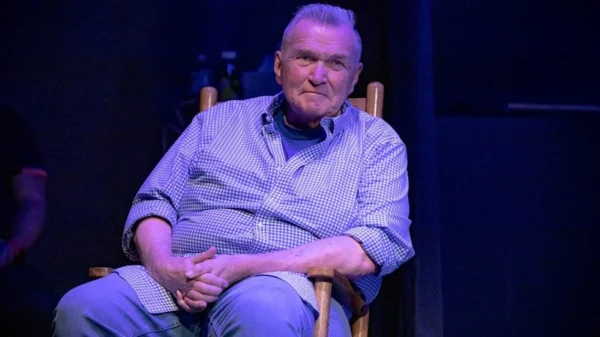
The word ‘icon’ is bandied around so much these, but one queer man who was this, and so much more, is the legendary activist DAVID MIXNER. His death has just been announced and he will be a great loss in our community as he was a giant in the global struggle for LGBTQ+ rights and a man of tenacity and heart.
Here is a reprint of part of the tribute/obit written by Fabrice Houdart an LGBTQ+ activist and academic who first met David in 2016 in New York while posted at the United Nations and was blessed with his friendship and counsel for the years after that.
David’s most significant accomplishment as an activist was that he retained his moral authority through thick and thin. That’s why, until the end, his endorsement and advice remained valuable to political candidates and LGBTQ+ organizations alike, who made the pilgrimage to Hell’s Kitchen to obtain his blessing.
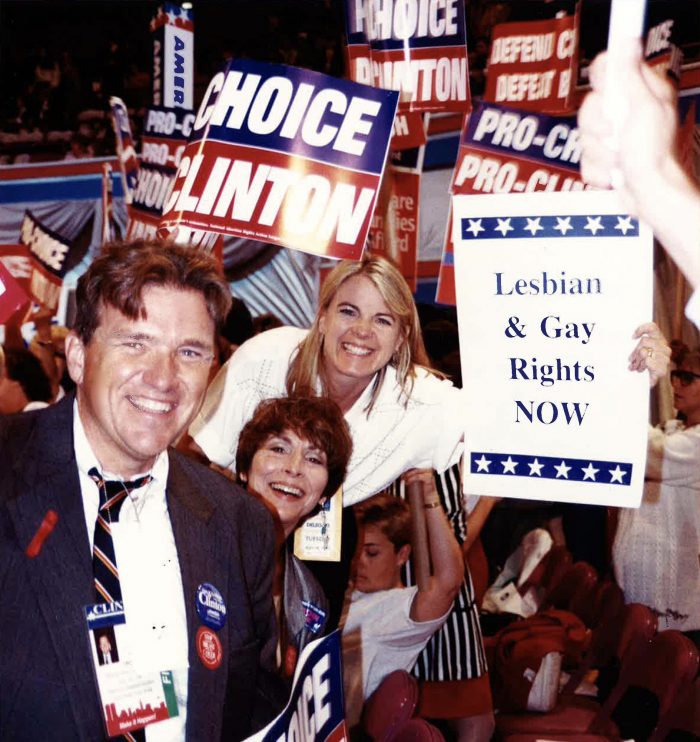 Long before DADT in 1978, Mixner and his partner Peter Scott convinced then-Governor Ronald Reagan to oppose Proposition 6[2], a far-right legislation that aimed to “protect children from homosexual teachers.” While Mixner later described Reagan as “one of the most gracious men in politics I have ever met,” he also said, “There’s no question in my mind — none — that if Ronald Reagan had acted on AIDS … most of my friends would still be alive today”. Reagan’s neglect of the HIV/AIDS epidemic ultimately led Mixner to support Bill Clinton and indirectly guide the federal government to address the epidemic.
Long before DADT in 1978, Mixner and his partner Peter Scott convinced then-Governor Ronald Reagan to oppose Proposition 6[2], a far-right legislation that aimed to “protect children from homosexual teachers.” While Mixner later described Reagan as “one of the most gracious men in politics I have ever met,” he also said, “There’s no question in my mind — none — that if Ronald Reagan had acted on AIDS … most of my friends would still be alive today”. Reagan’s neglect of the HIV/AIDS epidemic ultimately led Mixner to support Bill Clinton and indirectly guide the federal government to address the epidemic.
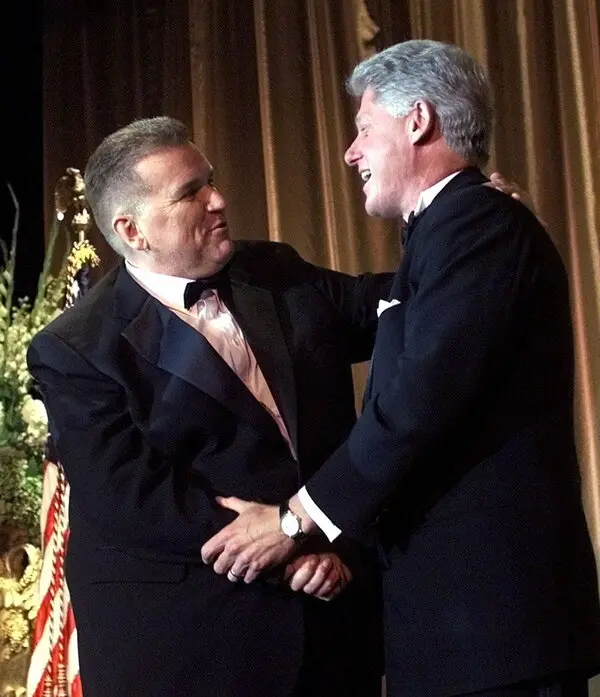 When Mixner met Clinton, he saw potential. Few politicians accepted political contributions from gays in the early 1990s. Mixner introduced the Clintons to queer America in 1991 and convinced Bill to court the gay community, something no presidential candidate had ever done before. Mixner raised several millions from the community to support Clinton’s campaign. His reputation was assured at that point—he was only 45 years old.
When Mixner met Clinton, he saw potential. Few politicians accepted political contributions from gays in the early 1990s. Mixner introduced the Clintons to queer America in 1991 and convinced Bill to court the gay community, something no presidential candidate had ever done before. Mixner raised several millions from the community to support Clinton’s campaign. His reputation was assured at that point—he was only 45 years old.
But, by 1993, he famously fell out with Clinton, whom he felt had betrayed his campaign promise to overturn the unjust ban on gays serving in the military. “I don’t think there’s ever before been a demonstration when major donors were arrested after their candidate’s election.”
After 1993, the ostracization Mixner experienced took a visible toll. He reportedly lost all his clients and couldn’t work for years. Eventually, he said he was pawning watches to pay his rent. His attempts to pressure the administration to fulfill its campaign promises cost him much more than he let on. Mixner might have misread the times and the political context —Clinton faced fierce opposition from the Joint Chiefs of Staff against lifting the ban—but this fantastic act of defiance was the ultimate sacrifice.
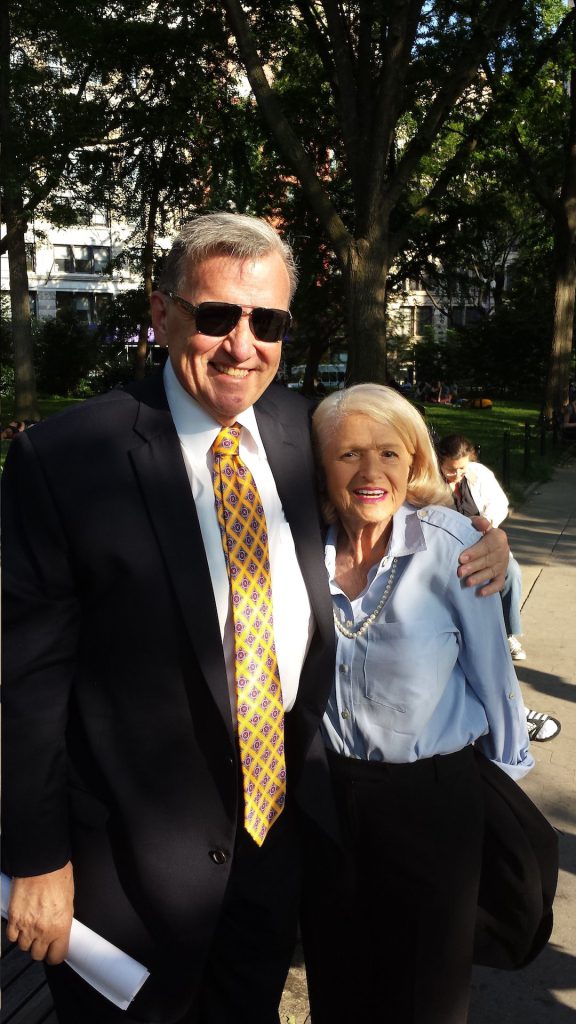 In. 1997, Mixner published his memoir Stranger Among Friends which merged his evolution as a gay rights leader with a critique of the Clinton campaign and DADT. Mixner eventually supported Obama over Hillary in the 2008 Democratic presidential primary. He would further infuriate Clinton’s allies by endorsing Bernie Sanders in the 2016 presidential primaries, a rebuke to unbridled capitalism.
In. 1997, Mixner published his memoir Stranger Among Friends which merged his evolution as a gay rights leader with a critique of the Clinton campaign and DADT. Mixner eventually supported Obama over Hillary in the 2008 Democratic presidential primary. He would further infuriate Clinton’s allies by endorsing Bernie Sanders in the 2016 presidential primaries, a rebuke to unbridled capitalism.
It is the hallmark of great people to be controversial. Mixner was wary of those who want everyone to like them—usually, they’re selling something. He consistently denounced greed, clientelism, and unethical political compromises. It takes courage to denounce greed in America.
After the end of the Vietnam War, Mixner’s activism ranged from advocating for civil rights legislation—he claimed he was once jailed alongside Dr. Martin Luther King Jr. and loved to say he spent the night in jail with Maxine Waters—to contributing to the response to the HIV/AIDS epidemic. Mixner’s trilogy of Broadway shows, which started playing in 2014 to benefit homeless LGBTQ+ youth, represents how he dedicated his life and creativity to others. After growing up in poverty, Mixner saw many of his friends die in Vietnam and later during the HIV/AIDS epidemic . Scott, his partner of more than twelve years, died from an AIDS-related illness in 1989. Mixner fought unrelenting racism and attacks on reproductive rights, and lately, he was the flag bearer of the LGBTQ+ resistance against Donald Trump.
David was a storyteller. Sure, he exaggerated at times, but this quip mainly illustrates how he angered more than a few people in his 64 years of activism. By then, David had become a “living legend,” as he joked. He was less powerful and, therefore, unanimously loved. Everyone humored him, though some, in private, hung on to their resentments.
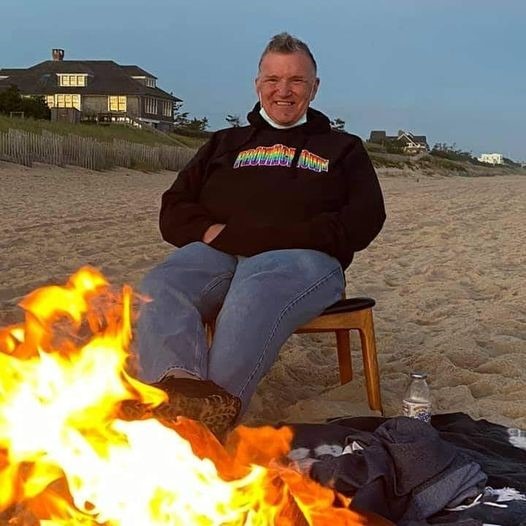 His stance on DADT cost him his business. And, despite raising over $30 million for Democrats and social causes in his lifetime, David ended up broke as his medical bills piled up. He told me that only his poorest gay friends contributed to the Patreon campaign for his YouTube channel, Mixner’s Corner, which he had established to help pay for rent.
His stance on DADT cost him his business. And, despite raising over $30 million for Democrats and social causes in his lifetime, David ended up broke as his medical bills piled up. He told me that only his poorest gay friends contributed to the Patreon campaign for his YouTube channel, Mixner’s Corner, which he had established to help pay for rent.
A life of true activism is necessarily heartbreaking, lonely, and poor; one’s legend is the only silver lining. My friend Reverend Albert Ogle articulated Mixner’s plight best while speaking on a related subject: “[This] is a common story. How can a person with integrity and a belief in the good of an institution advocate for change for marginalized people and not get eaten up or sidelined in the process?”
This is not to say that Mixner did not experience joy in his later years. He did. I never heard him express self-pity or bitterness; he was laughing, flirtatious, and mischievous whenever we grabbed lunch. He felt vindicated in many respects. Sometimes, he would mention without lingering his tremendous grief for those he lost. I could never assess the extent to which it haunted him. David, like many in our community, also battled addictions, difficulties managing his weight, HIV, and, eventually, long-term COVID. After receiving his last rites while in the ICU in 2017, he spent his last years as borrowed time. He loved his cats, rice cookies, storms, tornadoes, and hot men, particularly cowboys. He had guests for lunch at the Glass House Tavern across the street from his tiny apartment, many of whom were LGBTQ+ politicians and activists he mentored.
.When he felt a respite, he would accept invitations to speak worldwide, most recently in Milan, Dubai, and Amsterdam. In 2021, he supported me in setting up the Institute of Current World Affairs’ David Mixner LGBTQ+ fellowship to nurture the next generation of social justice leaders.
Like many, I came by to bid David farewell ten days ago with my sons. He gave me four last pieces of advice: avoid self-righteousness, foster dialogue with the other side, tell people firmly but gently when they disappoint you, and—now looking me directly in the eyes—he urged me to find joy in life beyond activism. “How can you successfully argue for a better world if you don’t find joy in the world yourself?” he asked.
As a final piece of wisdom, he shared the prayer he repeated every day: “Dear God, I know today can be filled with dark, ugly storms and bloody rocks. I also know that there will be at least one moment of light and joy, and my prayer is that you do not let me miss it. Amen.”
I see Mixner’s grit in a new generation of activists like Nadine Smith of Equality Florida or the Gender Cool Project. When I asked him if he would consider staying with us until after this year’s presidential election, he joked, “After me, the flood.” He meant that this is a battle for others to fight: our willingness to sacrifice and the courage of our convictions will be his enduring legacy.
The clip of Mixner below is courtesy of Firmin Rojas of DKR Films

